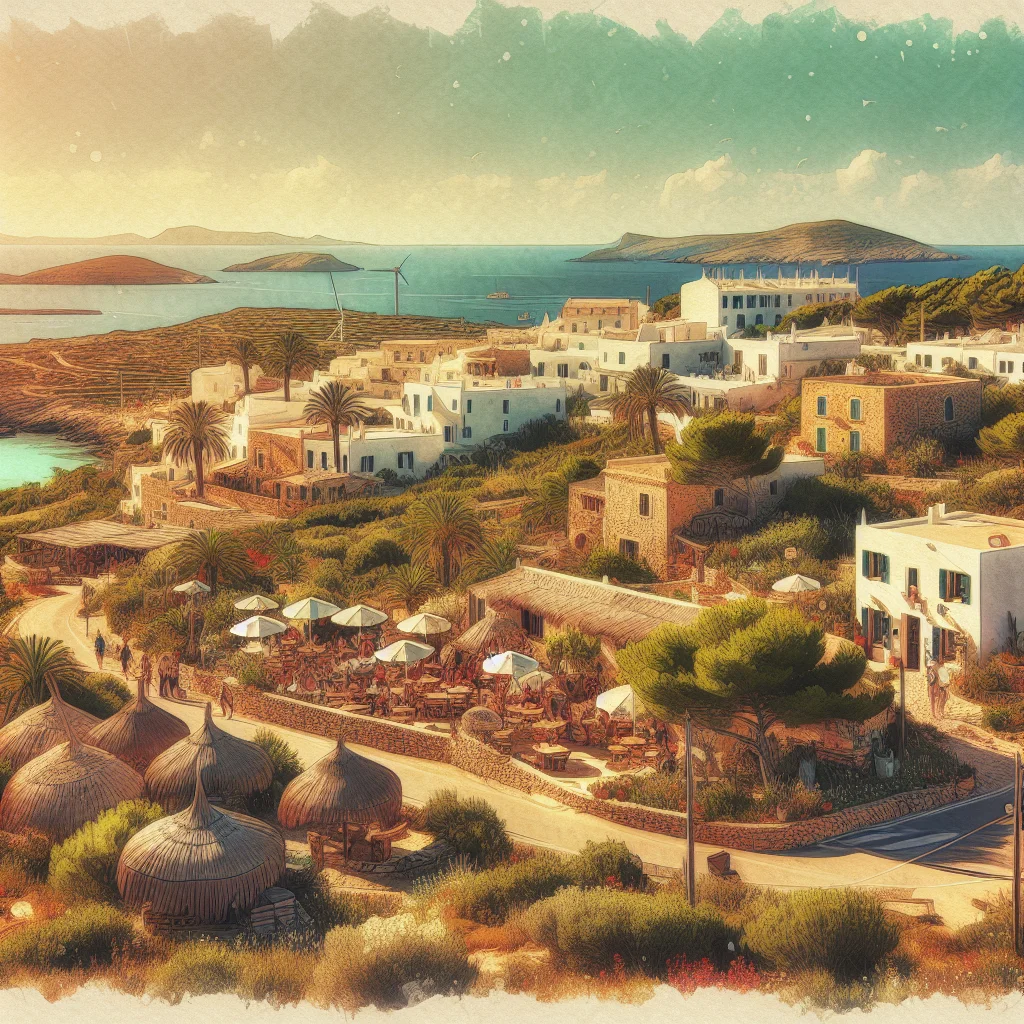Cultural Riches of Formentera: Sustainable Heritage Experiences
April 24, 2025

Introduction
Formentera, the smallest of the Balearic Islands, is not just a paradise of sun-soaked beaches and azure waters; it is also a cultural treasure trove waiting to be explored. This article delves into the sustainable practices of engaging with the island's rich heritage, from traditional crafts and local festivals to culinary experiences that reflect its unique culture. With an increasing number of eco-conscious travelers, it is crucial to appreciate and participate in cultural activities that honor Formentera’s history while minimizing our ecological impact.
The Essence of Formentera's Heritage
Formentera’s culture is deeply rooted in its history, shaped by the various civilizations that have inhabited the island over centuries, from prehistoric times through the Phoenicians and Romans to the present day. This rich tapestry is reflected in its architecture, language, and local customs. The islanders, known as Formenterans, are proud of their heritage, and it’s evident in the community's strong efforts to preserve and promote their customs through sustainable means.
Engaging with Local Festivals
Festivals in Formentera are vibrant celebrations that encapsulate the island's traditions and community spirit. One standout event is the Festa de Sant Bernard, held in August, which honors the island's patron saint. Visitors can experience live music, traditional dancing, and local gastronomic delights.
The island’s commitment to sustainability is clear during these celebrations. For example, many festivals encourage eco-friendly practices, such as minimizing plastic waste by using biodegradable materials and promoting composting. Travelers can participate by engaging actively—volunteering for clean-up activities or opting for sustainable food options offered at stalls.
Another significant festival is the Festa de la Terra, which focuses on environmental awareness and local ecology. Residents and visitors alike gather to enjoy workshops, exhibitions, and local art, all aimed at fostering a cultural appreciation for Formentera’s natural environment.
Culinary Traditions and Sustainable Dining
The culinary scene in Formentera is a reflection of its cultural identity. Traditional dishes highlight local ingredients sourced sustainably from the land and sea. One can’t miss trying pa amb oli, a beloved local dish made from simple ingredients like fresh bread, local olive oil, and island-grown tomatoes. Many local restaurants focus on seasonal menus that emphasize the use of organic produce and fish from sustainable fisheries.
Several eateries augment their agricultural practices with efforts toward zero waste. For instance, they repurpose vegetable scraps into stock or incorporate leftovers into daily specials. Participating in a cooking class that highlights these practices offers visitors the chance to engage more deeply with local culture while adopting environmentally friendly cooking techniques.
Craftsmanship and Artisanal Goods
Formentera is home to a range of skilled artisans who create handmade goods that embody the island’s cultural heritage. From traditional pottery to textiles and jewelry, these crafts represent the island's history and culture. Travelers can visit local workshops where artisans share their skills and stories. Purchasing these goods directly from the source not only supports local economies but also encourages sustainable practices, as many artisans prioritize eco-friendly materials in their work.
Moreover, art exhibitions featuring local artists often focus on themes of nature and sustainability, providing a comprehensive view of how Formentera’s cultural identity is interwoven with its environment. Attend openings and art fairs to gain insights into how the community values its natural surroundings through artistic expression.
Eco-Conscious Travel Practices
As you immerse yourself in the cultural experiences, it’s essential to practice eco-conscious behaviors. Simple actions like using public transportation, renting bicycles, or walking help minimize your carbon footprint. Many cultural events also promote sustainable practices, and by participating respectfully, travelers can show their appreciation for the island and its ecologically sensitive approach to heritage tourism.
Additionally, consider connecting with local guides who emphasize eco-tourism. Their insights can enrich your understanding of Formentera’s cultural narratives while also contributing to local preservation efforts. Many local guided tours offer a chance to explore historical sites, cultural landmarks, and natural wonders—all through the lens of sustainability.
Conclusion
Exploring Formentera’s cultural heritage through sustainable practices allows travelers not only to appreciate the island's history but also to contribute positively to its future. By engaging in local festivals, choosing sustainable dining options, and supporting local artisans, visitors can leave a minimal ecological footprint while fully enjoying the rich cultural tapestry of Formentera. Each experience highlights the delicate balance between preserving tradition and embracing an eco-friendly approach to travel, making it a unique destination for conscientious travelers.
Back